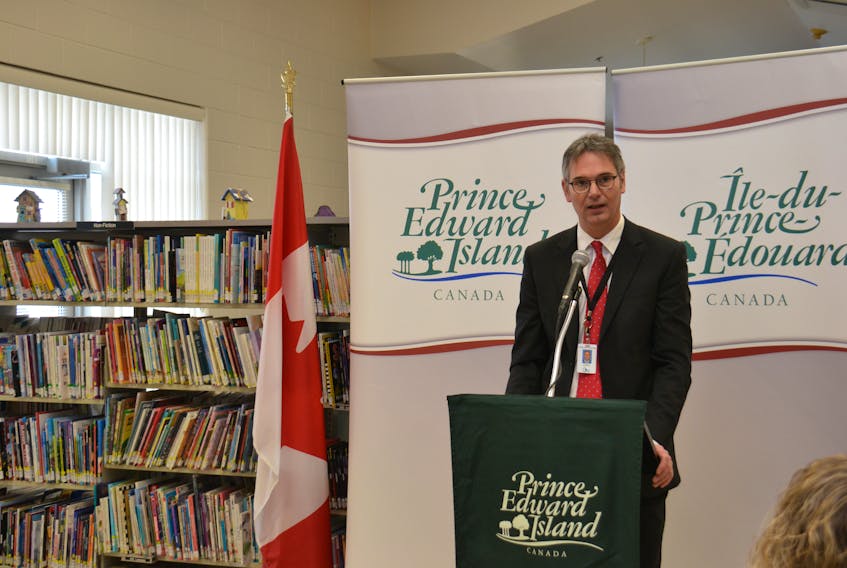CHARLOTTETOWN, P.E.I. - Students on the waiting list for a psychological-educational assessment aren’t being ignored, says the director of the Public Schools Branch.
Parker Grimmer spoke at a press conference in Charlottetown on Monday where the province said it will spend $2 million on a three-year plan to reduce wait times.
As of Monday, there were 435 young students on that waiting list, although the province wants the backlog cleared up by 2020.
“Presently, children are not lingering on wait lists,’’ Grimmer said. “They are well supported.’’
Grimmer went on to explain that there are three levels of support, beginning with level 1 which all students are afforded once they enter the school system.
“That’s the learning that happens in the classroom and with the curriculum and with the guidance of teachers. Teachers are well versed and trained at making accommodations for students and adaptations for them to be able to achieve success.’’
Level 2 is where students experience difficulty achieving the level of success that they or their families would hope for under level 1.
Grimmer said that’s when resource teachers working with school teams get involved to help classroom teachers to provide support and a certain level of assessment. It’s at this level where school teams are able to make decisions about whether further interventions are needed.
It’s at the third level where the struggle with the backlog is happening.
“In spite of (the hard work by staff), we know there is a challenge but we’re not sure what that actually is and so being able to bring forward this level of resource consultation is really important.
“The additions of intervention support teachers and technology facilitators will ensure classroom teachers and resource teachers are well supported in increasing students being assessed over the next few years.’’









